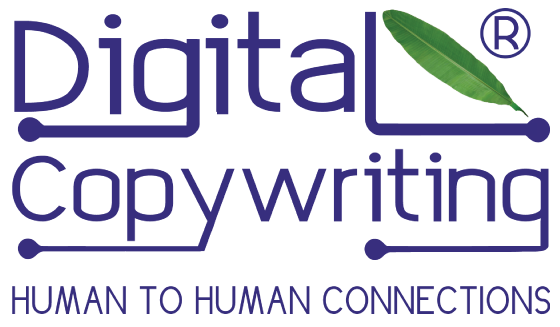
But... can you create 'know, like and trust' in just a few words?
The True Skill of Copy Writing
The concept of a website, a flyer, a social page isn't new. They are basic marketing assets now, right? But when you're not right there handing out the flyer or interacting on a social platform, how does your website go from words to sales?
Sometimes before they engage me, people can wonder WHY if they've paid so much for their 'online business card' they then need to invest even MORE in getting great copy.
The reality is that the words ON the website are often left to last, written by the business owner or an admin person. The result is often a generic website which lists WHAT you do, but not WHY someone would want to engage you to do it.
It's like having a retail store without a shop assistant. Some people will enquire but most will at best have a quick browse. There's often nothing unique about your 'shopfront' that compels your customer to stay.
What business owners don't realise is that you only get 1.2 to 7 seconds on the first view to engage your customers attention... and without great copy, nobody is there to say: 'Can I help you with something?'.
The true skill of a copywriter is to create an engaging immediate start to the conversation that you would have if you were face to face.
Now if you're wondering, is that it? You may say: "Let's be more conversational, job done!".
The fact is, there's a lot of hidden consideration that as a digital copywriter we include in our strategy... disguised as 'telling a good story'.
The Hidden Job of a Digital Copywriter
Here's the dirt on the nerd factor that lies behind being a strategic wordsmith.
1. UX or User Journey
Your story must be unique, in speaking to your ideal client and making them feel they know you. The first step is to define exactly how that client looks and feels so that we can use the right language. (If you'd like to know more about this I've got a video coming out that speaks about exactly this.)
In order for those ideal clients to find you a good fit, your story must define the problems that you solve for your clients.
In a crowded marketplace, the successful business will know that their client isn't so fussed with your service description. They are motivated by 'what's in it for me?' and so this is the focus of a good user journey. Here are a couple of examples:
Case Study 1: Balloon Shop and a Parent
You're a balloon shop owner. You speak to parents about their children's birthday party; you'll talk about little faces lighting up with joy, how easy it is to grab the balloons at the last minute and 'the delight you'll see from your little one' by bringing along a fully themed princess or a spider man, and how 'as a parent you will look like a superstar in minutes'.
The problems you are solving for the parent are:
They are time poor, need to make a decision, love an easy pre-order themed pack, may be price conscious.
With 12 packages you could cover lots of options, and help the parent look like a superstar.
You're making it easy for your client to say yes, pick a pack, pick up the balloons and create a magical experience for their child.
Case Study 2: Insurance Broker and Business owner
If you're an insurance broker who protects businesses, you'd speak about totally different problems. The language would change to something far more business oriented.
Protecting assets is one of the things they would worry about, keeping peace of mind for a business owner, making sure they aren't paying too much and that their assets are properly covered for full replacement value should the need arise.
Now can you imagine using words like 'superstar' or 'joy' here?
Also a pre-mix pack, that's not going to work either.
Insurance is a far more serious business, the language must suit and you would speak to owners who are time poor, want peace of mind, enough insurance, the right price, and a no nonsense policy that is properly explained.
A good user journey is essential to break the 1.2 second barrier.
2. Lead Pages are a Specialised Skill
A lead page is also known as a landing page. This page is designed to get your client to act, to click the 'buy now' or call you, or subscribe to your email series. The above are examples of how you attract the client, this is how you make the sale.
There's a psychology behind this process, an emotional journey, statistical information, client stories aimed at an ideal customer so that when you read it, it sounds like the solution is RIGHT THERE within your grasp.
Content Factory found that lead page writers on average earn between $1,500-$25,000 per page and Content Factory themselves charge at $1,000 per page minimum or $1 per word.
As a few words on a page, you might question the value up front. The answer lies not in what the copy costs, but whether it makes a difference to the phone ringing!
If you spend $2,500 with a copywriter but you get back $25,000 in sales within 3 months, well that copy was worth it, wasn't it?
If you'd like an example of a simple site with a great story, take a look at Doxie Watches. They have made thousands of sales through just a little copy about them and now they are creating a new watch size, with more fun to come!
3. Domain Trust
Beyond the actual lead page the best thing to do is consider your whole website and how Google perceives that.
If you're sending people just to a landing page, 68% of them 'abandon cart' on average, including me. I want to know, as I'm sure you do, what the brand is all about, who the providers are and whether the product is as good as the lead page tells me it is.
As part of your brand a lead page should look and feel in line with the rest of your online assets, not stand out like a sore thumb.
Doxie only needed our Sapphire package, which is just $599 AUD. This has made them over 50 times their investment in just a few short months.
The Sapphire package has whole website congruency, which gives your website not just sales but solid domain trust.
As a bonus we also do SEO research for you and have a chat about who you are and create your ideal client journey throughout the site. There's one more crucial nerd factor at play when a digital copywriter powerfully creates your story.
4. Google rankings
If you want to have any presence on Google you need to know a few things.
- 250 - 500 words per page is minimum search engine listing length
- Google black bans duplicate copy (template lead pages for example)
- If your external links are not working you'll be harder to find
- Your links must be to reputable sources to increase domain trust
It's true that many people can write and do write for their own business. The trick is to find someone who loves to write who also considers everything else that you need to make sales on your site.
If you have a 'Yes, but how does this work for me?', just email or call.
AND ... For the first 5 people who ask for the Sapphire package, I'll give that to you for $499, a saving of $100! Just mention this blog.
We are here to help you grow.
Related Tags: Website Content Writer | Digital Copywriter

